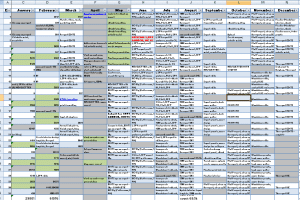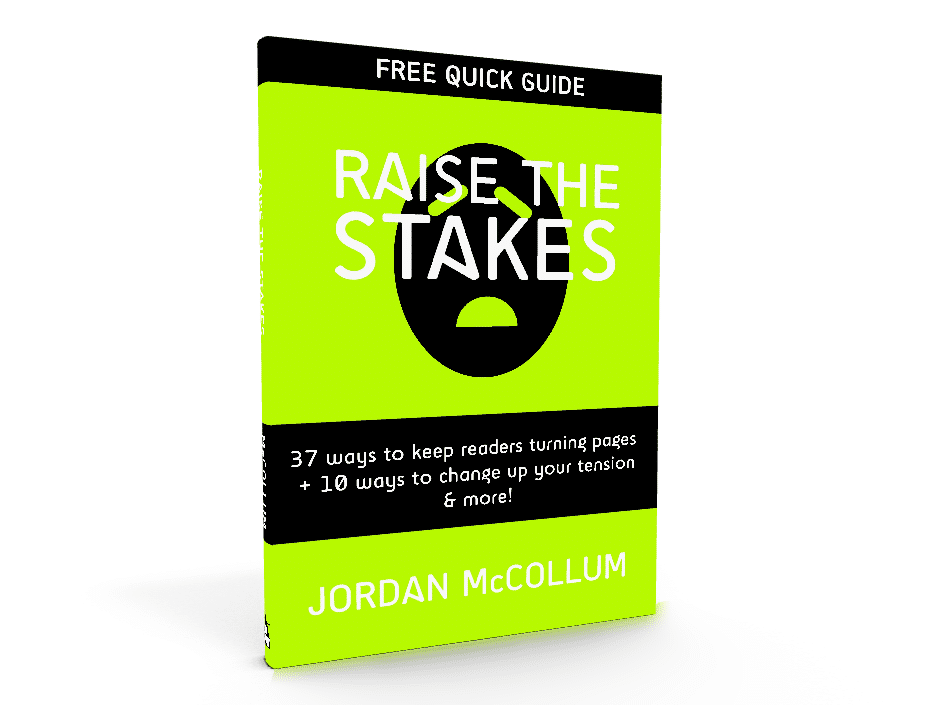Or how to fail again, but better
Last year, I failed.
Okay, so in reality, I had a pretty good year, as I confessed last week. (Not even counting having a baby. On my birthday. I won 2013 on that alone.) But I did have to change my plans quite drastically to accommodate some medium-sized set-backs, and a general loss of steam in the last couple months of the year.
I’ve been worried—yes, all one week of this year—that the slowdown from the end of 2013 would not only set me back at the start of this year with projects I didn’t finish and hurt my overall momentum. But I’m realizing that not only is slower sometimes okay (all right, maybe even better), but there are lots of other benefits to having things go skiddywampus every once in a while.

Prove your resilience
One of the most important benefits of failure is that we learn to bounce back. Yeah, it may be hard, but unless we’re talking about sky diving, you’ll have a chance to try again after failure.
It hurts. It does. And sometimes failure may show us something we really loved doesn’t work, or that our dream isn’t right for us in some way. But most of us don’t give up on life or dreams or the future when we fail. We bounce back because we have to, because giving up isn’t an option.

And every time we bounce back, we learn we’re stronger than we realized [Tweet it!]. We learn that the world won’t end the next time we fail—that there will probably be a next time, and we’ll live through it, and come out the other side, most likely even stronger.
Acquire new skills
When things go right the first time, we may feel happy and relieved, and bounce along our merry way. And that’s great. But when you get exactly what you expected for exactly what you put in, you don’t get to learn a whole lot.
When we fail, on the other hand, we learn the unfortunate lesson that what we just tried doesn’t work—so we have to try something new. And a lot of the time, that means tapping into something you haven’t tried before. It might mean studying it on your own to become a better writer or reaching out for help.
Increase your confidence
This might sound like #1, but trust me, it’s a little different. Because I “failed” last year, when I started this year with a . . . less-than-perfect-and-perhaps-not-quite-coherent manuscript, where the character arc wasn’t where I needed it to be and . . . maybe the entire main plot is sketchy at best and completely missing at worst—I didn’t despair of ever being able to fix it.
Last year I took a book with weak themes and weak conflicts and weak weakness and (with much help from others) turned it into what I’d hoped to create in the first place. Yep, even on my 12th manuscript, I’m reminded that revision can work miracles—and I can transform this messy manuscript into something I’m proud to publish. So instead of cowering in fear and playing games on Facebook, I’m editing this baby and digging in to try to make it as good as I can. And once I get some outside eyes on it, I’m coming back to do it all over again.
Okay, maybe there are a couple games on Facebook . . .
A chance to innovate
Sometimes, however, the best way to acquire a new skill is to try something totally new—to wing it for ourselves and leap in with both feet, and maybe a ballpoint pen and a paperclip. Brainstorming new solutions to an old problem opens all kinds of doors that simple success doesn’t even think about.
Seriously. Think about it—did MacGuyver go into a situation thinking, “Hey, I’ll have a ballpoint pen and a paper clip, I’m covered!” or “Don’t worry about that bomb, folks! I have hockey tickets!”?
Of course not. “MacGuyvering,” coming up with unusual uses for common objects to solve an emergency was his backup plan. But you can bet once it worked out the first couple times, he became a lot more confident he could do the same in the future, and he were able to think outside the box even more. (And the writers were forced to!)
Time to think
When your best-laid schemes gang agley, sometimes the biggest benefit is that it gives you some time to rethink.
For example’s sake, here’s my 2013 production schedule, color coded by days I met my goal. Key: green = met goal; gray = day off (maternity leave, holidays, Sundays). Blue & white: didn’t meet goal. (Not pictured: pushing back the launch of my 2nd book by a month.)

After my production schedule . . . kind of got off track, I had some less than happy months of self-recrimination, doubts, increased pressure on myself, greater shortfalls . . . That second book took four months longer to finish than I’d hoped, and even then, it fell far short of what I’d hoped to write. Getting it back there was grueling, and required months more of hard work.
Happy times.
After that experience of coming back from failure, I realized that despite my efforts, my production schedule wasn’t reasonable. I did manage to write another book—faster, but not at top speed—but I knew I wanted to try to economize my time in 2014. So rather than planning day after day of 2000 words (nowhere near my top output, so I thought it would be doable. HA!), I took more time to plan out my schedule, thinking very deeply about what I can do and what I should do to preserve my sanity.
When I made out my schedule, I went by month, back tracking from launch dates, or working forward based on other demands. I broke it down by week, and tried to make sure I only had one “major” task per week. I’ll let you know how it goes 😉 .
What do you think?
How have you benefited from failure?
Photo credit: silver lining—Kylir Horton


What I’ve learned is that creativity for me resists deadlines. I’m been struggling so much! An nutty election season didn’t help, and there have been other factors, but I haven’t given up.